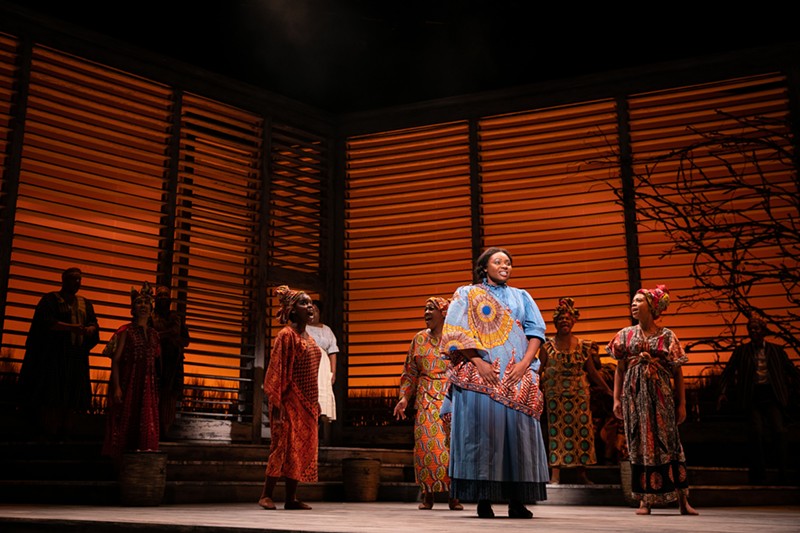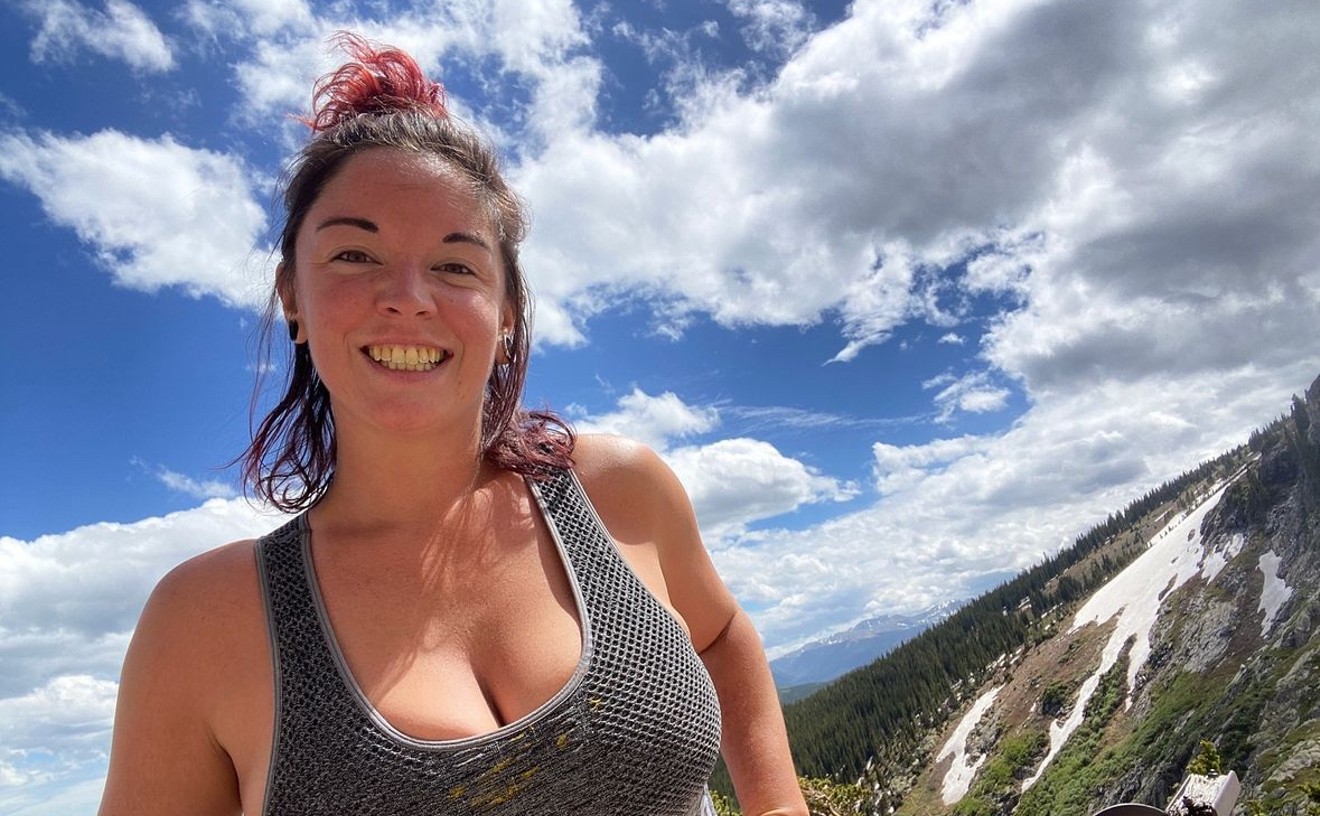“One of the lessons of the pandemic is that people are no longer willing to sacrifice their personal health and safety to live up to this old show-business creed," says Philip Sneed, president and CEO of the Arvada Center for the Arts and Humanities. "We've realized that no, the show doesn't have to go on; the well-being of our people — all of us, including those of us in leadership — is more important. We value our employees and our volunteers now more than ever, and that means we need to take care of them, and of each other.”
In addition to putting more value on artists, many organizations used the pandemic as an opportunity to introduce innovations that increase accessibility to the arts.
"The shutdown made us even more passionate about making sure that people have access to live entertainment," says Buntport Theater, which changed its ticket model to name-your-price and has been offering its space to other creatives at low prices — and it was entirely free for a year.
As theaters reopened, they attempted to do so in a way that would allow their shows to continue sustainably, without unexpected shutdowns.
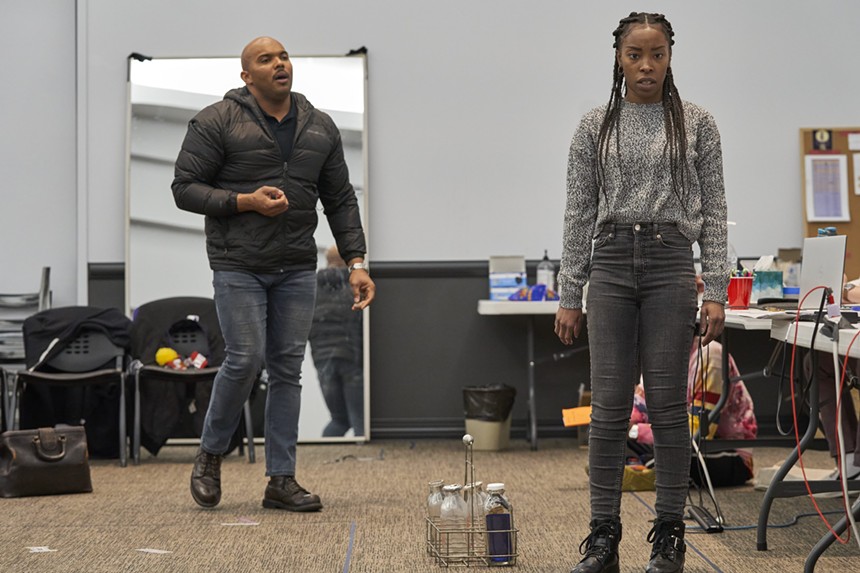
Lavour Addison and Tresha Farris rehearse for the Arvada Center's production of Our Town. Two performances were canceled because of COVID-19; the run continues through May 21.
Courtesy of the Arvada Center
In fact, the current season has been “business as usual," Yoe says. "The DCPA's patrons have shown a healthy appetite for the return of live theater, with more than 25,000 subscribers who have purchased multi-show packages and consistently strong sales to all forms of theater — Broadway, immersive, new works, classics, comedies and dramas."
At other theaters around Denver, different scenes are playing out. While the DCPA has not required masks for over a year, several other companies, including Buntport, Su Teatro Cultural and Performing Arts Center and Phamaly Theatre Company, required masks for their first performances in 2023.
"We have a lot of members within [the disability] community for whom COVID can’t be over," says Ben Raanan, Phamaly's artistic director and director of Spring Awakening, which ended its run earlier this month. "Coming to Phamaly is the only place many people feel safe. Listen, I don’t love wearing a mask all that much, either, but I’ll put on the mask if that means we can help people safely come out of their houses to experience theater."
"Although a lot of people act as though this has passed, the reality is that we are still very vulnerable," says Tony Garcia, executive director of Su Teatro and author/director of El Espíritu Natural, whose first weekend of performances in March was canceled when one of the leads tested positive for COVID.
The decision to continue requiring audience members to wear masks this spring was made because of community concerns. "The numbers in the Latino and over-65 communities are still high," Garcia notes. "And being that I am both, and so are our audiences, we have to plan accordingly. The goal is audience engagement and not huge houses. That will return with time."
The last-minute cancellations come at a price that extends beyond finances.
“Audience patience with COVID-related adjustments and cancellations is dwindling," says Sarah Kolb, director of marketing and communications at the Arvada Center. "In our box office, we notice increased distrust from patrons who have experienced shows being canceled or rearranged when COVID cases arise. They’re less likely to be understanding of these problems when they do happen than they were when they were more novel, and more likely to make their plans and purchasing decisions at the last minute. Changes in how and when people choose to make purchases to events is impacting the Arvada Center's strategies for promoting shows as well, and we're only just beginning to learn what that will look like long-term."
The Arvada Center has had to cancel four performances this spring because of COVID (two of Our Town and two of The Book Club Play) and has relied on an evolving network of understudies and swings to make spur-of-the-moment adjustments to ensure that shows continue, even if one or two cast members do need to quarantine.
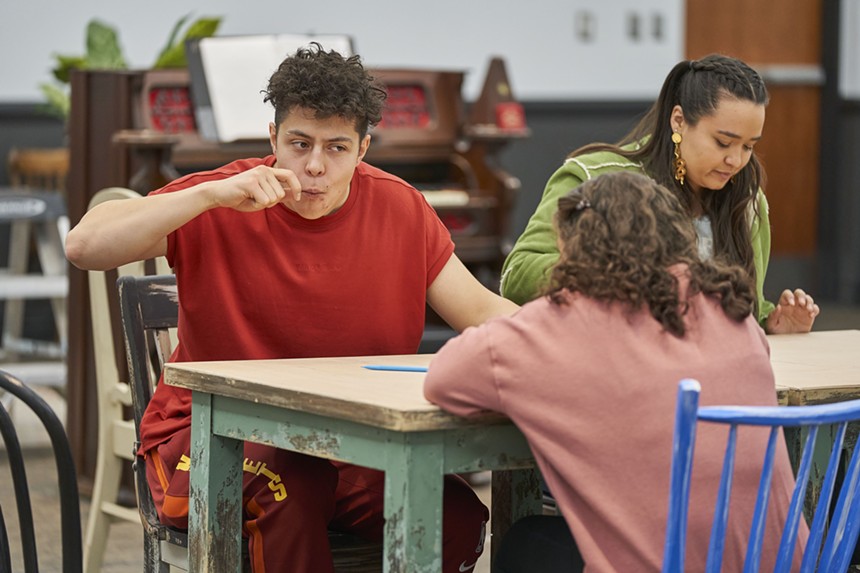
Thomas (Teej) Morgan-Arzola mimesmwhile Claylish Coldiron sits next to him during a rehearsal of Our Town.
Courtesy of the Arvada Center
Along with creating more detailed contingency plans for performances, the Arvada Center has been monitoring the lingering cost of the pandemic on its finances. "We've started projecting ticket revenue at levels far below what we were seeing pre-pandemic," says Sneed. "Most of our productions have been budgeted about 20 to 30 percent lower than we would've projected in sales prior to 2020. And even those levels are proving to be too high, at least for some productions."
Sneed credits the theater's ability to plug its budget gap to the federal pandemic relief funding it received; the Arvada Center received two Paycheck Protection Program loans (both fully forgiven), several Shuttered Venue Operator Grants, refunds through the Employee Retention Tax Credit and other subsidies.
"Altogether, we've received over $6 million from these programs; without those funds, I suspect we would no longer be in operation," says Sneed. "But those funds are running out, and ticket revenue hasn't returned to prior levels, so we're trying different strategies to fill the gap. For example, we're only doing five productions next season — we did six this year and seven every year prior to that — but we're running them all longer than in the past, so we end up with the same number of performances. We're exploring how to leverage word-of-mouth publicity in a longer run, in the hope of bringing in as much revenue as we did with six or seven productions but with the cost of only five."
"We are still paying financially and emotionally," says Haley Johnson, executive director of Benchmark Theatre. "Benchmark took out a Small Business Association loan that we are currently paying back — and it was not a small number — in addition to overhead and production costs, which have gone up and are not going away. So we adjusted and went from seven shows last year to five shows for our 2023 season. We also chose to do smaller scripts with smaller casts."
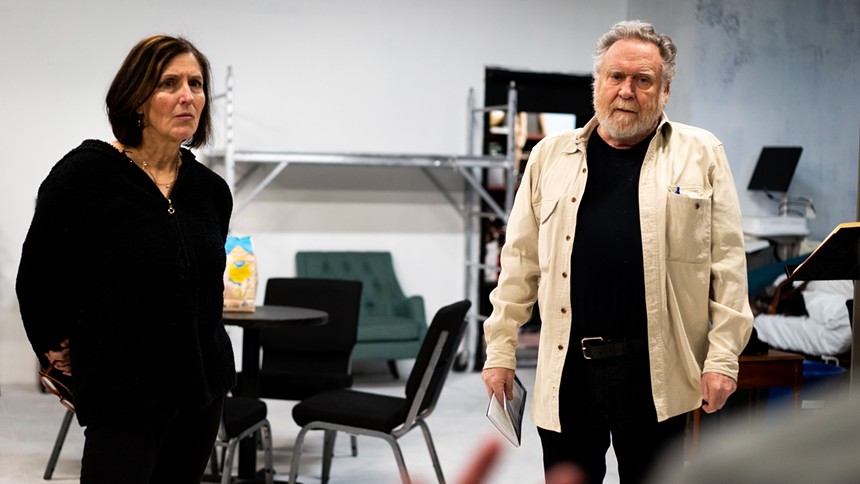
Christine Kahane and Chris Kendall rehearse a scene for the regional premiere of A Great Wilderness at Benchmark Theatre., which runs through May 13.
Courtesy of Benchmark Theatre
"Our audiences are happy for the engagement," says Su Teatro's Garcia. "We are still uncovering a lot of trauma from COVID; we have only begun to hear stories and talk about healing. COVID was one thing, but a lot of people are really unaware of the trauma that our community faced in the four years under the previous chaos and attacks of the previous administration."
Theaters have encountered less willingness from audience members to tolerate shows that lack a clear point of view. "Patron tastes have become more polarized," notes Kolb. "Many patrons tell us they’re longing to laugh and are seeking out comedies, lighthearted stories or feel-good musicals to forget their own worries and bring humor into their lives. Other people are the opposite, and have shared that they’re moved by theater that’s authentic, emotional, or touching on current political worries and concerns. There seems to be less interest and patience for stories that fall somewhere in between those spaces."
Kolb speculates that audiences are less willing to risk seeing shows with which they are unfamiliar unless the concept is easy to grasp. "For example, The Book Club Play, a relatively unknown smart literary comedy, is selling better than we anticipated. It’s a contemporary comedy with a built-in audience (book clubs and book lovers), and it’s exceeded our expectations this spring," she says. That play runs through May 18.
While arts administrators acknowledge that there is still work to be done to ensure long-term survival, they highlight the resilience of people in the theater industry.
“This has been tough for everyone," says Johnson, "but I'm grateful to the artistic community for being supportive. We had to hold hands and walk ourselves through a period of immense darkness, and we just have to keep doing the work to rebuild little by little."

